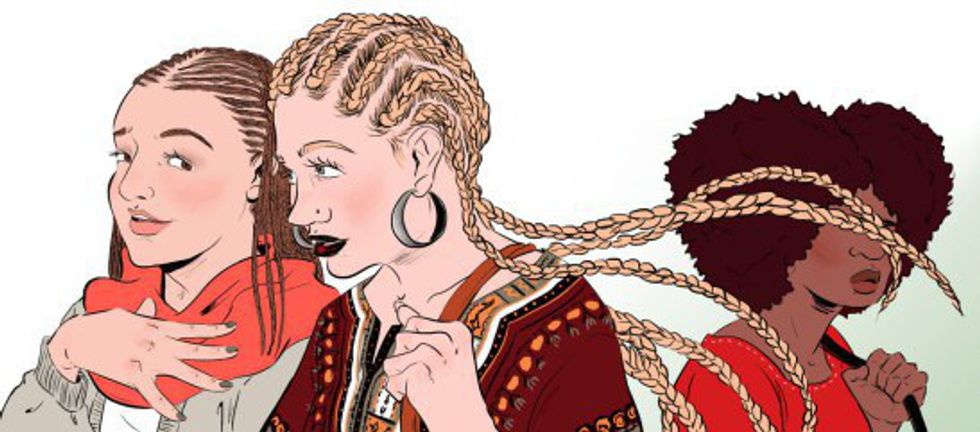In discussions of the black female community, there is a controversial issue of whether cultural appropriation and the hyper-sexualization of the female body is even a factor. While some argue that cultural appropriation is, in fact, cultural appreciation and is harmless, others contend to believe that it is detrimental. The so-called cultural appreciation and hyper-sexualization has stripped black women of their creativity, ethnic identity, and human qualities causing black women to be used a disposable prop allowing them to fade into the background.
There has been a conscious effort for black women to conform to whiteness that stemmed from white supremacy. Black women have always been subjected to being treated for less than their worth. More than five times out of ten black women have to seriously consider how they are dressed or think about changing their hairstyles to be acceptable for corporate America, or the “white dominated workforce”. However, when white women decide to be “creative” and try what would be considered “ethnic” hairstyles, fashion, and even dances associated with black culture, they are praised. Moreover, black women are subjected to either being called whores for accentuating their sexuality, fetishized or aren’t recognized for their contributions to modern culture.
In 1979, the movie "10," starring Bo Derek, ignited the beginnings of what would become modern cultural appropriation. The famous scene of Bo Derek on the beach with cornrows and beads made the media go haywire. Many consider her hairstyle to be so versatile and new, but the black female community saw something different. For years black women were told to straighten their hair because natural hairstyles were considered to be unclean and not professional.

A prime example of the overt sexualization of the black female body was evident in Taylor Swift’s "Shake It Off" video. Black women were only present in the video as props specifically for the twerking scenes. This wouldn’t have been a big issue if there wasn’t a long history of black women being hyper-sexualized, beginning in the late early 19th century with Sarah Baartman. Taylor was praised for her “impressive” rump shaking but when Nicki Minaj released her "Anaconda" video earlier that year she received a significant amount of backlash for her twerking. Again, black women are put down for the culture they influence but white women can do no wrong and are in fact praised for their mimicking. This is a form of “othering” because white women are allowed to assume or play the roles of black women but seem to be invisible when it comes to the repercussions of “blackness”. Ergo, indicating that qualities of the black female identity are in fact “cool” and “trendy” but not for the black women.





















